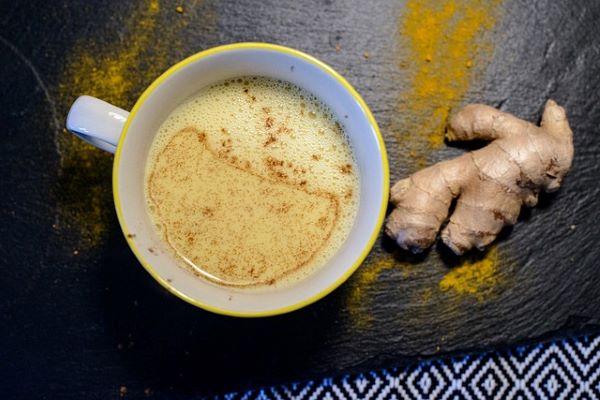When winter rolls in, so do the sniffles, sneezes, and that sluggish feeling. What if I told you the secret to a stronger Immunity system is sitting in your spice rack? Ginger and turmeric—two humble roots—might just be the superheroes your winter wellness routine needs Immunity. Let’s dive into why adding these golden ingredients to your diet for 30 days could make a world of difference.
Also, read: 30 Days of Staying Active: Indoor Workouts to Beat the Winter Slump
Why Ginger and Turmeric Are Winter Must-Haves- Immunity
Ginger and turmeric are more than just ingredients for fancy lattes or curry dishes—they’re packed with powerful compounds that support your immune system.
Ginger: The Warming Wonder
Ginger contains gingerol, a bioactive compound known for its anti-inflammatory and antioxidant properties. Studies suggest that ginger can help reduce muscle pain, ease nausea, and even fight infections. Plus, its natural warming effect makes it a cozy addition to winter meals. (Source)
Turmeric: The Golden Shield
Turmeric’s star ingredient is curcumin, a compound celebrated for its anti-inflammatory, antiviral, and immune-boosting benefits. Research in the Journal of Clinical Immunology highlights curcumin’s role in modulating the immune response, making it a natural defender against seasonal colds and flu. (Source)
The 30-Day Ginger and Turmeric Challenge
Here’s the plan: incorporate ginger and turmeric into your diet daily for 30 days. It’s easier than you think, and the benefits are worth the effort.
Morning Boost: Ginger-Turmeric Tea
Start your day with a warm cup of ginger-turmeric tea. Here’s a simple recipe:
- Grate 1 inch of fresh ginger and ½ teaspoon of turmeric (or use powder).
- Boil in water for 5-7 minutes.
- Strain, add honey or lemon, and enjoy.
This tea is soothing, and refreshing, and sets a positive tone for your day.
Lunchtime Additions – Immunity
- Add grated ginger to your salad dressing for a zingy kick.
- Sprinkle turmeric into soups or stews for that earthy, golden flavor.
- Mix a pinch of turmeric with yogurt as a dip for veggies.
Evening Comfort
- Make a golden milk latte: Warm up milk (dairy or plant-based) with a pinch of turmeric, ginger, and a dash of cinnamon. Sweeten with honey for a cozy bedtime drink.
- Roast veggies like carrots and cauliflower with turmeric, ginger, olive oil, and salt. (Source)
What Science Says About Ginger and Turmeric
1. Anti-Inflammatory Properties
Chronic inflammation can suppress your immune system, making you more susceptible to illness. Research in Advances in Experimental Medicine and Biology confirms that curcumin and gingerol help reduce inflammation markers in the body.
2. Antioxidant Power
Oxidative stress can weaken immunity over time. Both ginger and turmeric are loaded with antioxidants, which neutralize harmful free radicals and protect your cells.
3. Antimicrobial Benefits
Turmeric and ginger have natural antimicrobial properties, helping to fend off bacteria and viruses. A study published in the Journal of Ethnopharmacology found that ginger extracts can inhibit the growth of certain respiratory pathogens.
4. Digestive Support
A healthy gut is key to a robust immune system. Ginger aids digestion by speeding up the emptying of the stomach, while turmeric supports gut health by promoting a balanced microbiome. (Source)
My Personal 30-Day Journey
I’ll admit, I wasn’t sure I’d stick to this challenge. Life gets busy, and remembering to grate ginger every day felt daunting. But I kept it simple—tea in the morning, a sprinkle of turmeric in my soup, and golden milk before bed.
The results? My energy levels improved, my skin glowed, and (knock on wood) I didn’t catch the flu despite everyone around me sneezing. Coincidence? Maybe. But I’m convinced these spices played a role.
FAQs
1. Can I take ginger and turmeric supplements instead?
Absolutely! If you’re short on time or dislike the taste, supplements are a convenient option. Just check with your doctor to ensure the dosage is safe.
2. Are there any side effects?
In moderation, ginger and turmeric are safe for most people. However, excessive amounts might cause digestive upset or interact with medications like blood thinners. Always consult a healthcare professional if you’re unsure.
3. Can I use powdered forms instead of fresh?
Yes! Powdered ginger and turmeric are equally effective and often easier to incorporate into recipes. Just make sure they’re high-quality and free from additives.
4. How do I store fresh ginger and turmeric?
Store them in the fridge, wrapped in a paper towel, to keep them fresh for weeks. You can also freeze grated portions for quick use.
5. Can kids and elderly people join this challenge?
Definitely! These spices are safe and beneficial for all ages. Adjust the quantities to suit their taste preferences.
Practical Tips for Success
- Prep Ahead: Grate ginger and turmeric in bulk, then freeze in small portions.
- Experiment: Don’t be afraid to try new recipes—smoothies, stir-fries, or even baked goods.
- Stay Consistent: The benefits build up over time, so aim for daily consumption.
- Pair with Black Pepper: A pinch of black pepper enhances the absorption of curcumin in turmeric.
Final Thoughts
Adding ginger and turmeric to your diet for 30 days isn’t just a health challenge—it’s a delicious, warming, and incredibly rewarding experience. These humble spices bring a burst of flavor to meals while boosting your immune system in ways you’ll appreciate all winter long.
So, what do you think? Ready to give it a try? Your body—and taste buds—might thank you.





